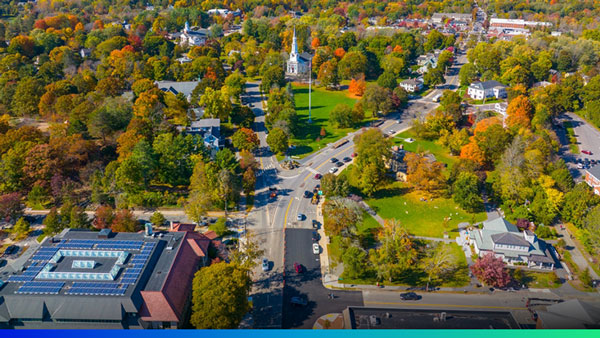The team consisting of Xendee Corporation, RAND Corporation, Converge Strategies, LLC, and Ridgeline Energy Analytics supported the Town of West Tisbury and Brigham and Women’s Hospital in their planning and design of climate-resilient energy infrastructure.
The team supported community resiliency efforts that reduced GHG emissions, enabled the integration of renewable energy sources, and provided energy resilience for critical facilities during electrical grid outages through the application of resilient microgrid energy systems.
Microgrid preliminary technical design and system configuration:
- Developed a least-cost optimal resilient microgrid technical design and configuration that prioritized clean resources for integration into the existing community energy distribution network.
- Analysis included assessment of energy consumption, peak demand, tariffs, and determined acceptable loss of load expectation (LOLE) under business-as-usual and costs for loss of load. Also included analysis of critical loads and backup power operational requirements
- Outlined microgrid use cases for resiliency and economics and delivered the following:
- Established baseline (costs and resiliency)
- Resilient least-cost optimal microgrid configuration with optimal dispatch logic
- Financial reports and business case for system configuration. Also including any changes in costs (both from utility rate change and equipment upgrades/ cost escalation)
- Distribution System One-Line Diagram
- Quasi-Static Time-Series Power Flow analysis
- Cable and Transformer loading conditions and Transformer Tap settings
- Any electrical upgrades that would be needed for microgrid installation
Control and cyber-security:
- Created a plan that defined how cyber-security will be addressed.
- Produced preliminary technical design and system configuration documents and business case for the microgrid system consistent with the microgrid Design proposed.
Stakeholder engagement:
- Completed stakeholder identification and engagement, including the identification of stakeholders and decision-makers from each selected community, the development of a stakeholder map and engagement strategy, and the development of a stakeholder communications plan.
- Designed, coordinated, and implemented community workshops to confirm the size, scope, and objectives of the community energy resilience project.
- Identified potential funding opportunities available from federal, state, and local governments, and local utilities that could be considered by the community Project Team and incorporated into the Xendee analysis.
RFQ, RFP, and Construction Bid Development:
- Identified the community’s energy resilience needs, including a review of energy data provided by the community through the RFQ and RFP process, gathered additional/supplemental community energy data as needed, and conducted interviews with critical facility owners to identify energy resilience requirements, capabilities, and gaps.
- Supported MassCEC with the development of an RFP for community Project Teams.



